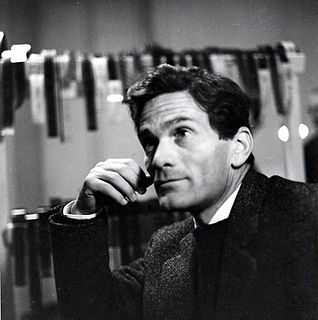A Quote by William Shakespeare
The sense of death is most in apprehension.
Quote Topics
Related Quotes
Death does determine life. Once life is finished it acquires a sense; up to that point it has not got a sense; its sense is suspended and therefore ambiguous. However, to be sincere I must add that for me death is important only if it is not justified and rationalized by reason. For me death is the maximum of epicness and death.
So the main question is not, Which humans brought about the death of Jesus but, What did the death of Jesus bring about for humans - including Jews and Muslims and Buddhists and Hindus and nonreligious secularists - and all people everywhere?When it is all said and done, the most crucial question is: Why? Why did Christ suffer and die? Not why in the sense of cause, but why in the sense of purpose?
The most refined abstractions of logic conduct to a view of life, which, though startling to the apprehension, is, in fact, that which the habitual sense of its repeated combinations has extinguished in us. It strips, as it were, the painted curtain from this scene of things. I confess that I am one of those who are unable to refuse my assent to the conclusions of those philosophers who assert that nothing exists but as it is perceived.
I was living my own future and my brother's lost one as well. I represented him here just as he represented me there, in some unguessable other place. His move from life to death might resemble my stepping into the kitchen - into its soft nowhere quality and foggy hum. I breathed the dark air. If I had at that moment a sense of calm kindly death while my heart beat and my lungs expanded, he might know a similar sense of life in the middle of his ongoing death.
If I had my life over again I should form the habit of nightly composing myself to thoughts of death. I would practise, as it were, the remembrance of death. There is no other practice which so intensifies life. Death, when it approaches, ought not to take one by surprise. It should be part of the full expectancy of life. Without an ever-present sense of death life is insipid.
The concentration camps, by making death itself anonymous (making it impossible to find out whether a prisoner is dead or alive), robbed death of its meaning as the end of a fulfilled life. In a sense they took away the individual’s own death, proving that henceforth nothing belonged to him and he belonged to no one. His death merely set a seal on the fact that he had never existed.






































